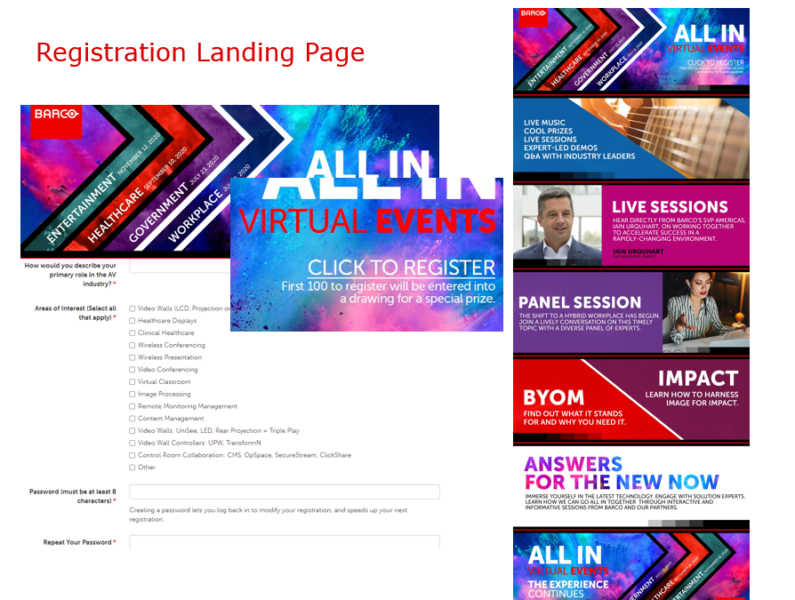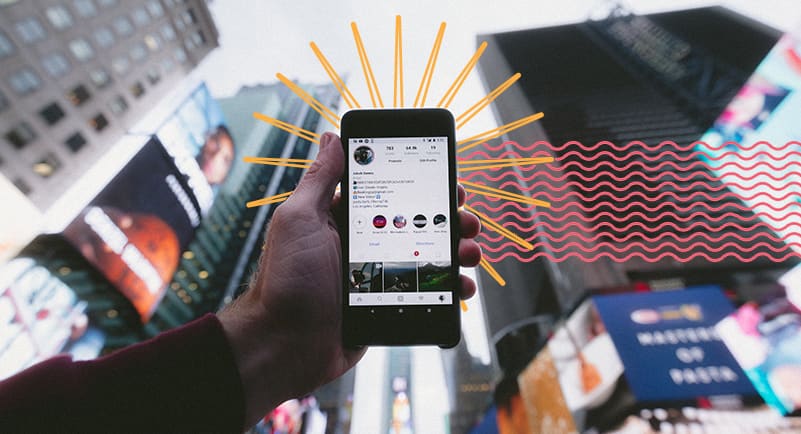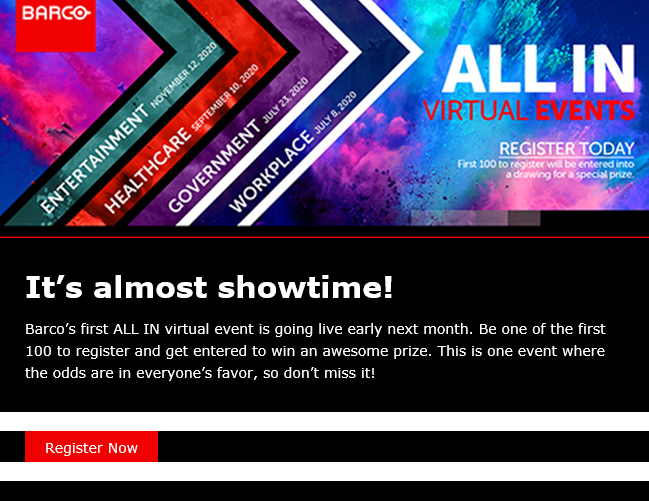October 20, 2020
If you build it, will they come? The COVID crises has event marketers scrambling to find alternative marketing methods for live events. By now you have probably dived into the world of virtual events with both feet and without a life jacket. If you did your job, you created an informational, relevant, memorable, and entertaining virtual experience. The big day came, and everything went off well except for one thing: not many people attended.
One would think that promoting a virtual experience for maximum participation would be a given, and yet many companies underestimate and fail to budget accordingly for this vital step. You should have an integrated promotional strategy that spans social media, email and more.
- Your Website
Think of ways to use the space on your existing website to announce your event is going virtual. A simple banner or welcome bar can be used consistently to promote your event site-wide.
- Landing Page
A standalone webpage created to advertise a single event can be your primary promotional tool to communicate objectives, schedules, keynote speakers, FAQs and other information designed to pique interest in attending. Be sure to include the value of your virtual event and clear instructions on how to register.
- Mobile Marketing
As members of the modern world, we all have one thing in common: we almost never leave home without our phones. From a marketing standpoint this is great news because we always have a way to reach out and share information. Mobile ads can be an excellent and budget-friendly way to drive attendance to your virtual event. Utilizing web banners, search engine ads and social sponsored ad placements are all effective means of marketing.
Email marketing will be the most effective way of communicating with your attendees at each stage of the event. Remember that everyone is bombarded with virtual event invitations. Send prior-to and day-of reminders to registered participants. Including an option to add a calendar reminder when they RSVP will increase attendance. Be creative! For instance, offer a gift to the first 100 people to register.
- Social Media
Announce your virtual event on the social media platforms which are most likely to be used by your target audience. You should start by announcing the date/time and provide a link to the landing page with registration information. Post consistently and often, develop a unique hashtag, and keep people apprised of speakers and sessions as they are confirmed. You may want to consider paid ads to reach more people.
Create a blog post which describes why your event is valuable and why your audience needs to know about it. Share the content on your website, social media, and email.
You can also enlist the support of event speakers and panelists in promoting your virtual event on their own social media, and make sure your employees are active in reinforcing the event, as well.
Another good idea would be to set up a separate page on Facebook for your event.
- Promote Post-Show
Have a follow up email ready to thank your audience for attending and to provide a link to any “on demand” content you are offering. A post-show survey is a great way to gather opinions that can be used to improve your next event and garner testimonials. We cannot emphasize how important testimonials are in creating graphics and blog material. Video clips and speaker quotes from the event can also be repurposed for blogs and social media. In short, you want to keep the conversation going after the event by continuing to post to your social media accounts and include highlights on your website.
Conclusion
You want your attendees to feel the same buzz and excitement they would feel if they were attending a live event. Therefore, if you build it, they will come providing you have given proper thought, execution, and budget to promoting a memorable and engaging virtual event.
Have questions on how to get started planning? No matter the format, our team can help design the right brand experience to achieve your business goals. We look forward to speaking with you!
Related Articles
Strategies for Producing Engaging Virtual Events
4 Ways TPG is Helping Clients Create Amazing Virtual Events
A Message to our Clients During the COVID-19 Outbreak
Virtually Speaking – 7 Tips for Presenting at Virtual Events



